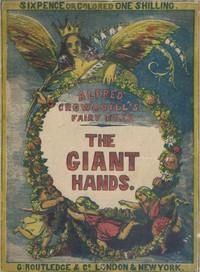|
|
Read this ebook for free! No credit card needed, absolutely nothing to pay.Words: 15972 in 15 pages
This is an ebook sharing website. You can read the uploaded ebooks for free here. No credit cards needed, nothing to pay. If you want to own a digital copy of the ebook, or want to read offline with your favorite ebook-reader, then you can choose to buy and download the ebook.

: Legends Tales and Poems by B Cquer Gustavo Adolfo Olmsted Everett Ward Editor - Spanish language Readers 6 Best Loved Spanish Literary Classics@FreeBooksTue 06 Jun, 2023 INTRODUCTION LIFE OF BECQUER UNPUBLISHED LETTER OF BECQUER BIBLIOGRAPHICAL NOTE SPANISH PROSODY DESDE MI CELDA--CARTA SEXTA LOS OJOS VERDES LA CORZA BLANCA LA AJORCA DEL ORO EL CRISTO DE LA CALAVERA EL BESO MAESE P?REZ EL ORGANISTA LA CRUZ DEL DIABLO CREED EN DROS LAS HOJAS SECAS RIMAS VOCABULARY INTRODUCTION LIFE OF BECQUER "In Seville, along the Guadalquivir, and close to the bank that leads to the convent of San Jer?nimo, may be found a kind of lagoon, which fertilizes a miniature valley formed by the natural slope of the bank, at that point very high and steep. Two or three leafy white poplars, intertwining their branches, protect the spot from the rays of the sun, which rarely succeeds in slipping through them. Their leaves produce a soft and pleasing murmur as the wind stirs them and causes them to appear now silver, now green, according to the point from which it blows. A willow bathes its roots in the current of the stream, toward which it leans as though bowed by an invisible weight, and all about are multitudes of reeds and yellow lilies, such as grow spontaneously at the edges of springs and streams. "The white poplars, swaying night and day above my grave, should seem to utter prayers for my soul in the rustling of their green and silver leaves. In them the birds should come and nest, that they might sing at dawn a joyous hymn to the resurrection of the spirit to regions more serene. The willow, covering the spot with floating shadows, should lend to it its own vague sadness, as it bent and shed about its soft, wan leaves, as if to protect and to caress my mortal spoils. The river, too, which in flood tide might almost come and kiss the border of the slab o'ergrown with reeds, should lull my sleep with pleasant music. And when some time had passed, and patches of moss had begun to spread over the stone, a dense growth of wild morning-glories, of those blue morning-glories with a disk of carmine in the center, which I loved so much, should grow up by its side, twining through its crevices and clothing it with their broad transparent leaves, which, by I know not what mystery, have the form of hearts. Golden insects with wings of light, whose buzzing lulls to sleep on heated afternoons, should come and hover round their chalices, and one would be obliged to draw aside the leafy curtain to read my name, now blurred by time and moisture. But why should my name be read? Who would not know that I was sleeping there?" So mused the poet Becquer in the golden days of his youth, when his veins were swelling with health, when his heart was fired with ambition, and in his ears was ringing the joyous invitation of his muse. His knowledge of the world was confined to the enchanting city of his birth. Her gems of art and architecture had wrought themselves into the fabric of his dreams; he had mused in her palm-gardens, worshiped in her temples, and dreamed long afternoons on the shores of her historic river. He knew nothing of the cold, prosaic world of selfish interests. The time had not yet come when, in bitterness of spirit, and wrapping his mantle about him against the chill wind of indifference, he should say: "To-day my sole ambition is to be a supernumerary in the vast human comedy, and when my silent role is ended, to withdraw behind the scenes, neither hissed nor applauded, making my exit unnoticed." Here Gustavo Adolfo Dominguez Becquer opened his eyes upon this inhospitable world. Eight days later he was baptized in the church of San Lorenzo. He was one of a family of eight sons, Eduardo, Estanislao, Valeriano, Gustavo Adolfo, Alfredo, Ricardo, Jorge, and Jose. His father, Don Jose Dominguez Becquer, was a well-known Seville genre painter. He died when Gustavo was but a child of five, too young to be taught the principles of his art; but he nevertheless bequeathed to him the artistic temperament that was so dominant a trait in the poet's genius. Becquer's mother, Do?a Joaquina, survived his father but a short time, and left her children orphaned while they were yet very young. Gustavo was but nine and a half years old at the time of his mother's death. Fortunately an old and childless uncle, D. Juan Vargas, took charge of the motherless boys until they could find homes or employment. Among the students of San Telmo there was one, Narciso Campillo, for whom Gustavo felt a special friendship,--a lad whose literary tastes, like his own, had developed early, and who was destined, later on, to occupy no mean position in the field of letters. Writing of those days of his youth, Se?or Campillo says: "Our childhood friendship was strengthened by our life in common, wearing as we did the same uniform, eating at the same table, and sleeping in an immense hall, whose arches, columns, and melancholy lamps, suspended at intervals, I can see before me still. Shortly after the matriculation of young Becquer, the College of San Telmo was suppressed by royal orders, and the lad found himself in the streets. He was then received into the home of his godmother, Do?a Manuela Monchay, who was a woman of kind heart and much intelligence. She possessed a fair library, which was put at the disposal of the boy; and here he gratified his love for reading, and perfected his literary taste. Two works that had considerable influence upon him at this time were the Odes of Horace, translated by P. Urbano Campos, and the poems of Zorrilla. He began to write verses of his own, but these he later burned. It cannot be said that he received the news of his dismissal regretfully, for he had accepted the position largely to please a sympathetic friend. Slight as was the remuneration, however, it had aided him to live; and when this resource was removed, Gustavo was again obliged to depend upon his wits. His skill with the brush served him in good stead at this time, and he earned a little money by aiding a painter who had been employed by the Marquis of Remisa to decorate his palace, but who could not do the figures in the fresco. Essentially an artist in temperament, he viewed all things from the artist's standpoint. His distaste for politics was strong, and his lack of interest in political intrigues was profound. "His artistic soul, nurtured in the illustrious literary school of Seville," says Correa, "and developed amidst Gothic Cathedrals, lacy Moorish and stained-glass windows, was at ease only in the field of tradition. He felt at home in a complete civilization, like that of the Middle Ages, and his artisticopolitical ideas and his fear of the ignorant crowd made him regard with marked predilection all that was aristocratic and historic, without however refusing, in his quick intelligence, to recognize the wonderful character of the epoch in which he lived. Indolent, moreover, in small things,--and for him political parties were small things,--he was always to be found in the one in which were most of his friends, and in which they talked most of pictures, poetry, cathedrals, kings, and nobles. Incapable of hatred, he never placed his remarkable talent as a writer at the service of political animosities, however certain might have been his gains." Free books android app tbrJar TBR JAR Read Free books online gutenberg More posts by @FreeBooks

: De La Salle Fifth Reader by Christian Brothers - Readers Children's Instructional Books@FreeBooksTue 06 Jun, 2023
|
Terms of Use Stock Market News! © gutenberg.org.in2025 All Rights reserved.






